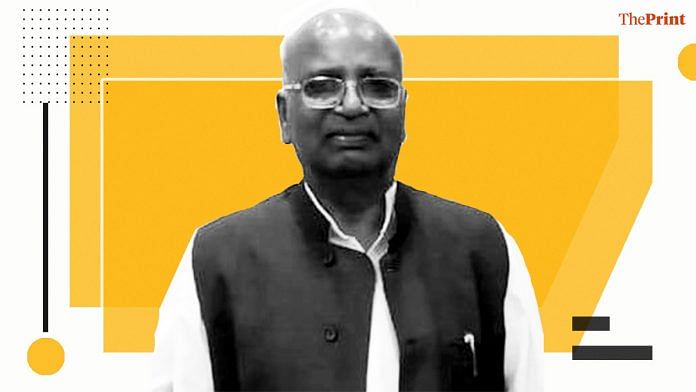New Delhi: The National Commission for Backward Classes (NCBC) has written to the Modi government, demanding that the chairperson of the panel be accorded cabinet minister rank.
In a letter to Prime Minister Narendra Modi dated 31 August, NCBC chairperson Bhagwan Lal Sahni has cited the fact that the chiefs of other panels representing marginalised communities hold a cabinet minister rank.
“The chairpersons of the National Commission for Scheduled Castes and the National Commission for Scheduled Tribes also enjoy the status of cabinet ministers,” the letter added. “In several states, the chairpersons of the backward classes commissions have the rank of cabinet or state ministers.”
A cabinet rank for NCBC chairperson will go a long way in allowing the panel to deliver on its duties, Sahni has said in the letter that has been accessed by ThePrint.
The chairperson of the NCBC holds the rank of secretary to the Government of India, as do the vice-chairperson and some other members.
Cabinet ministers are seventh in rank in the government hierarchy, coming after the President, Vice-President, Prime Minister, governors, former presidents, deputy PM (if any), Chief Justice of India and Speaker of the Lok Sabha, while the secretaries are on the 23rd rung.
This order of precedence determines the status of functionaries, dignitaries and other officials. A cabinet minister rank for NCBC chief will afford incumbents more powers in enforcing its mandate, which is to ensure the backward classes get their due as well as decide what all communities qualify as such.
The post of NCBC chairperson qualified for a cabinet rank until 2018, when the body was accorded constitutional status by the Modi government, a fact Sahni has noted in the letter.
“I would like to bring to your notice that, in the past, all the heads of the backward classes commission held the rank of cabinet ministers,” he said.
The chairperson holding the position of secretary throws up a lot of challenges and impediments in the commission’s functioning,” he added.
The commission has previously taken up the matter with the Ministry of Social Justice and Empowerment — under which the commission functions — but its demand has not been accepted so far, Sahni said.
Also Read: Govt panel sends notice to ONGC over inquiry on OBC employees ‘exploitation, quota violation’
‘Difficult for panel to discharge duties’
The NCBC was constituted under the National Commission for Backward Classes (NCBC) Act, 1993, following the Indra Sawhney judgment of the Supreme Court, which dealt with reservations for the OBCs.
In 2018, the commission was given constitutional status by the Modi government on a par with the SC/ST panels, which allowed it to take up grievances and other welfare issues with regard to OBCs.
This was done by repealing the NCBC Act, 1993, and bringing in the Constitution (102nd Amendment) Act, 2018. Under the norms listed in the accompanying National Commission for Backward Classes Chairperson, Vice-Chairperson and Members (Conditions of Service and Tenure) Rules, 2018, the posts mentioned were assigned a secretary rank.
A source in the government privy to the matter said the commission had also raised the cabinet rank issue with Union Home Minister Amit Shah at a meeting in July, and was assured of a positive response from the government.
Talking about the problems brought on by the absence of this rank, the source added, “There is a lot of caseload on the commission, and it becomes extremely difficult for the panel to discharge its duties with the chairperson having a secretary rank.
“There are massive vacancies in the commission too…While the number of sanctioned positions in the commission is 135, the filled positions are just 52. So how can the commission work?”
Also Read: Only 9 OBC professors teaching in central universities across India against 313 quota posts



